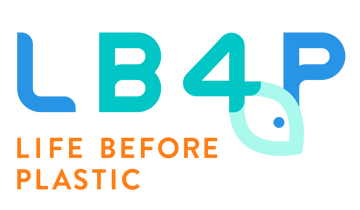A Guide to Eco-Labels & the Products You Buy

The discourse on the sustainability of a product or service usually focuses on a company's self-certification and leads to a type of "greenwashing" or marketing spin. A more passive and proactive approach to products is being adopted by plastic-free and eco-friendly businesses.
Letting the consumer gather information and make an informed decision, as opposed to planting the seed through an ulterior motive, is becoming the way forward for ethically sound businesses. This is where eco-labels come in.
What are eco-labels?
Eco-labels are sustainability measurements -- by labelling goods and services if they meet a certain environmental criteria in their life cycle. The labels are independently determined by an impartial third party. This part is crucial.
While "greenwashing" can occur when companies make bold claims about the sustainability of their own product or service, eco labels are there to provide unbiased transparency for consumers. This means we can read an eco label and be assured of the sustainability of the product.
Eco-labels are used across all sectors. Labels you might already be familiar with include Marine Stewardship Council (MSC) for sustainable seafood and the Energy Star for energy efficiency. But I'm going to focus on the eco labels you're likely to see attached to plastic-free or zero waste products.
Forest Stewardship Council (FSC)

The global forest certification system label indicates that the product comes from a forest that is sustainable and will ensure forests are alive for future generations.
Seeing FSC on a product indicates these things: complying with laws and regulations, maintaining social and economic wellbeing of workers, upholding indigenous rights, managing/conserving environmental impacts, applying a precautionary approach and repairing any negative impacts.
FSC certified products include the recyclable dish brush and the wooden baby comb.
The Vegan Society Trademark

The vegan trademark is a worldwide symbol signifying that the product is free from animal testing and animal ingredients. You can be assured that products with this label are completely vegan and cruelty free.
The vegan society class animals to include vertebrates and all multicellular invertebrates, and the trademark certifies no animal ingredients have been used, including derivatives; no animal testing; separate utensils are used for vegan foods; and the development of genetically modified organisms (GMOs) do not involve animal genes.
You can find all of our vegan friendly products by following the link.
Leaping Bunny

The Leaping Bunny eco-label is the international label for cruelty-free cosmetics, personal care and household products.
To be approved, brands must commit to ensuring and allowing for an examination of their supply chain including their raw materials, ingredients and the finished products. This is then verified by cruelty-free international.
PETA-approved Cruelty-free and Vegan

A certification from People for the Ethical Treatment of Animals (PETA) is not strictly an eco-label, as a company can sign up to PETA-approved Cruelty-Free and Vegan themselves. To be PETA-approved, a company must sign PETA's statement of assurance verifying that it does not conduct or commission any animal testing on ingredients, formulation or finished products and will not do so in the future.
Some of our cruelty-free products include spearmint natural toothpaste and almighty multipurpose balm.
GOTS Certification

The Global Organic Textile Standard (GOTS) is the certification ensuring the organic status of textiles. It covers processing, manufacturing, packaging, labelling, trading and distribution.
For textiles to fulfil the requirements, they must be made from at least 70% certified organic natural fibres, as well as complying with social criteria such as providing living wages, no discrimination and no child labour.
The certification covers products such as yarns, fabrics, clothes and home textiles, and is inspected by independent accredited bodies.
GOTS certified products include organic cotton beeswax food wraps and reusable organic tea bags.
Rainforest Alliance Certification

Rainforest Alliance Certified is a symbol for farms, forest and tourism. This eco-label signifies that the company has complied with rigorous environmental and social sustainability criteria. This ensures biodiversity conservation, improved livelihood and human wellbeing, natural resource conservation, and effective planning and farm management systems.
Farms and companies are regularly audited to check that they are conforming to the standard.
Fairtrade

Arguably one of most well known eco-labels, the Fairtrade Foundation Certification is a label for products sourced from producers in developing countries.
The certification ensures a Fairtrade minimum price, better working conditions and protection of the environment. For example, rules on the use of pesticides and prevention of deforestation. The Fairtrade certification is independently verified.
Our Fairtrade products include the coffee & coconut salt scrub.
Conclusion
We know that shopping by your values is important, so we've sorted our plastic-free shop to make that as easy as possible. You can filter by your values, and each of our product descriptions describes the eco-friendly nature of the product.
Are there any eco-labels you've come across and what to know more? Let us know in the comments.

